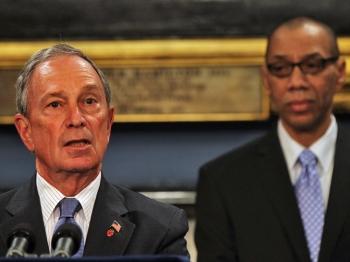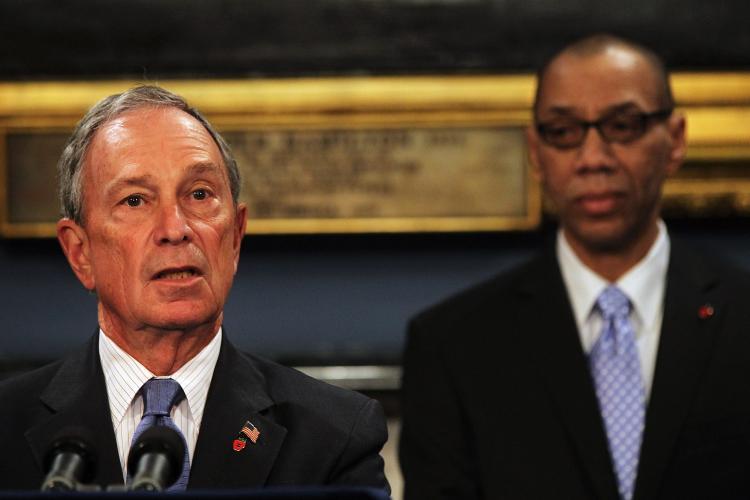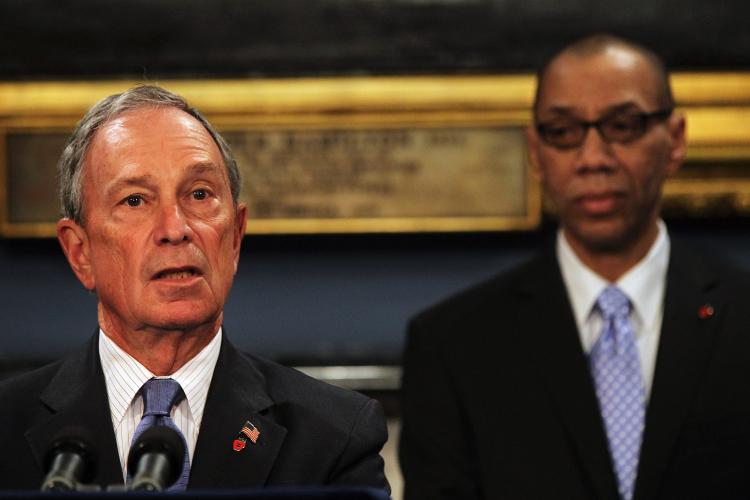NYC Schools Chancellor Cathie Black Steps Down
Cathleen Black stepped down as schools chancellor for New York City under Mayor Michael Bloomberg.

New York City Mayor Michael Bloomberg (L) speaks while introducing Dennis Walcott, his current deputy mayor for education, as the new Schools Chancellor for New York City following the departure of the controversial Cathleen Black on April 7, 2011 in New York City. Spencer Platt/Getty Images
|Updated:






